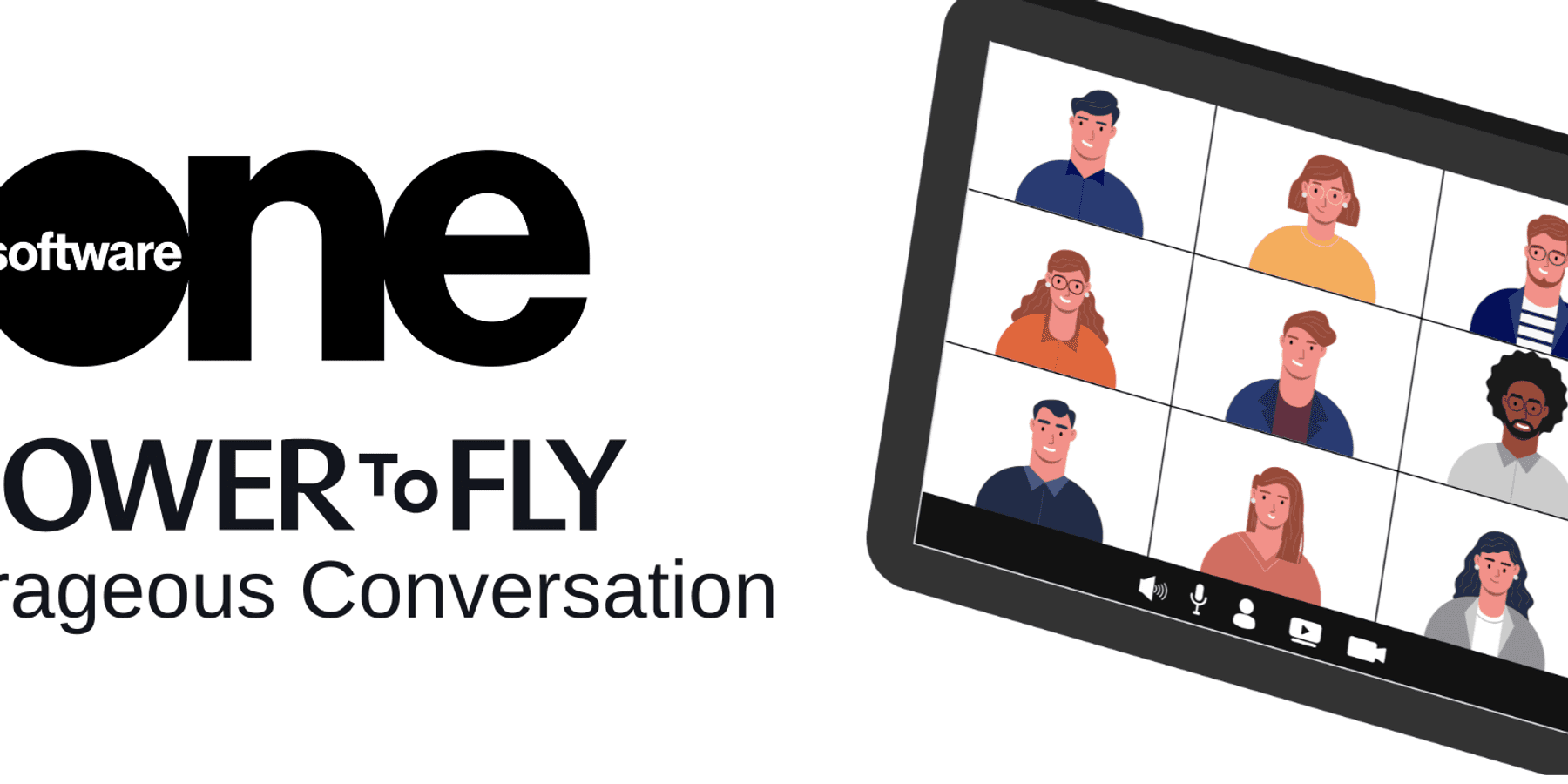Employee turnover is inevitable, but missed learning opportunities from turnover don’t have to be standard.
When someone decides to leave your organization, it’s easy to focus on backfilling the role and moving on. However, taking time to ask the right exit interview questions can unlock valuable insights that help you retain your top performers, strengthen your workplace culture, and improve your processes across the board.
Think of an exit interview as a strategic tool that helps you understand the employee experience from beginning to end, including:
- What made someone join your company?
- What kept them engaged (or didn’t)?
- And ultimately, what pushed them to move on?
In this blog, we’ll share 18 of the best exit interview questions to ask, along with why each one matters and what kind of feedback it can uncover. But first, let’s talk about how to run a great exit interview in the first place.
How to conduct a great exit interview
The way you approach an exit interview can make the difference between getting surface-level responses and uncovering real, actionable feedback.
Try these steps:
1. Choose the right time and format
Aim to schedule the exit interview within the employee’s final week — close enough to their departure to be relevant, but not so close that they’ve mentally checked out. Also, consider offering format flexibility: Some employees may prefer a video call, while others may feel more comfortable submitting written answers.
Whenever possible, avoid having the employee’s direct manager conduct the interview. An HR team member or neutral third party can help foster a more open (and judgment-free) space.
2. Keep it conversational, not confrontational
Let the employee know the goal of the conversation is to learn from their experience, not to critique or challenge their reasons for leaving, regardless of what that reason is. Set a tone that’s curious, empathetic, and appreciative.
Reassure them that their feedback won’t impact references or future opportunities, and that their insights can help shape a better experience for their colleagues.
3. Listen more than you talk
You’re not there to debate the employee’s experience. Good exit interviews involve active listening, asking thoughtful follow-up questions, and spotting patterns over time.
Take notes, but focus on being present. You want to leave the employee feeling heard.
4. Use the feedback to drive change
The most valuable exit interview questions are only effective if you actually do something with the answers. Look for trends across departments, locations, or job levels. Are people consistently leaving for the same reasons? Are certain managers or teams mentioned often?
Use this data to adjust your recruitment messaging, manager training, career development opportunities, and more. When employees see that feedback leads to action (even after they’ve left), it helps boost your company’s reputation and retention long-term.
Read this next: 5 reasons why employee retention is important
18 exit interview questions you should be asking
Now let’s chat about what questions you can ask to get that valuable information. Most of these will apply regardless of why the employee is leaving, but you can tailor a bit accordingly.
1. What initially attracted you to this role?
✅ Why it’s worth asking: This question helps you understand what’s working in your recruitment process, everything from the job description to your employer brand and the reputation of your specific team. It gives insight into what drew candidates in, so you can keep leaning into those strengths.
2. Did the role meet your expectations? Why or why not?
✅ Why it’s worth asking: It uncovers gaps between what employees thought the job would be and what it actually turned out to be. If there’s a disconnect, it might signal a need to improve job description clarity, interview accuracy, and/or onboarding processes.
3. What aspects of the job did you enjoy most?
✅ Why it’s worth asking: By pinpointing what employees liked about their role, you can reinforce those elements across other teams or future hires. This question also helps you identify what your company is doing right when it comes to engagement, benefits, and motivation.
4. What aspects of the job were most frustrating?
✅ Why it’s worth asking: Frustrations are often what push people to start looking elsewhere. This question surfaces specific tasks, tools, culture issues, or processes that may need to be reevaluated before they drive more turnover.
5. How would you describe your relationship with your manager?
✅ Why it’s worth asking: The manager-employee relationship plays a massive role in retention. This question gives you a window into leadership styles, communication gaps, and how supported (or micromanaged) employees may have felt.
6. Did you feel supported by your manager and the leadership team?
✅ Why it’s worth asking: This question goes beyond the day-to-day and evaluates whether employees felt seen and backed by decision-makers. If people consistently say “no”, it may point to a larger trust or visibility issue across the organization.
7. Did you receive regular feedback and recognition?
✅ Why it’s worth asking: Performance conversations (or lack of them) can seriously impact morale. This question helps you evaluate whether your feedback processes are working and where you might need a boost.
8. How would you describe the company culture?
✅ Why it’s worth asking: Culture can be pretty difficult to define, but your employees experience it every day. Asking this allows you to hear how your values are actually lived (or not) and pick up on recurring patterns around inclusion, collaboration, and morale.
9. Did you feel a sense of belonging here?
✅ Why it’s worth asking: A powerful question to measure psychological safety and inclusivity. If people don’t feel like they belong, it’s a sign to take a closer look at team dynamics, onboarding, workplace culture, employee resource groups, or leadership behavior.
10. Were there any incidents or behaviors that made you uncomfortable?
✅ Why it’s worth asking: This question provides space for employees to flag harassment, bias, or unethical behavior — things that might not have been reported formally but still have a serious impact. Patterns here can reveal deeper issues you need to address proactively.
11. Did you feel you had opportunities to grow your career here?
✅ Why it’s worth asking: If growth is lacking, turnover tends to follow. This question highlights whether employees saw a clear path forward and if your learning & development and promotion processes are helping (or hurting) retention.
12. What support or resources would have helped you advance?
✅ Why it’s worth asking: This takes the previous question a step further. It gives employees the chance to suggest what would’ve made a difference, from mentorship to skill development to clearer promotion criteria.
13. What ultimately led you to decide to leave?
✅ Why it’s worth asking: The big one. This question gets to the heart of the departure and helps you distinguish between individual reasons (like relocation) and systemic ones (like burnout or compensation concerns).
14. Was there anything we could have done to keep you?
✅ Why it’s worth asking: Sometimes, people leave because of things that could’ve been addressed earlier. This question helps you evaluate whether there were missed opportunities for intervention or retention strategies that need refining.
15. Did you feel comfortable bringing up concerns before deciding to leave?
✅ Why it’s worth asking: If employees didn’t feel safe sharing feedback or challenges (or even HR issues) until their exit interview, that’s a problem. This question evaluates how open your internal feedback culture really is and whether people trust it enough to use it.
16. Would you consider returning to the company in the future?
✅ Why it’s worth asking: This question gives a strong signal of how people feel about your organization overall. Even if someone’s leaving, a “yes” here means they still view the company in a positive light, which is important for alumni networks, referrals, and future hires.
17. Would you recommend this company to others? Why or why not?
✅ Why it’s worth asking: This question helps you gauge employer brand perception. If former employees wouldn’t recommend you to others, it’s time to dig into why and work on changing that narrative.
18. Is there anything else you’d like to share?
✅ Why it’s worth asking: Always leave room for unexpected insights. This open-ended question can surface things you didn’t think to ask and give employees a final opportunity to share what’s most important to them.
Watch this next: Unlocking potential: The role of career advancement & growth in employee retention
Questions NOT to ask in an exit interview
Just as important as knowing what to ask is knowing what not to ask. Exit interviews should be constructive, not confrontational — and definitely not a space to shift blame or put someone on the spot.
Here are a few types of questions to avoid:
1. “Who was the weakest link on your team?”
❌ Why it’s a bad idea: This kind of question invites gossip and can make the employee feel uncomfortable. If there were serious team issues, they’ll likely come up organically in response to broader, more respectful questions.
2. “Can you give us a list of everything that went wrong?”
❌ Why it’s a bad idea: Exit interviews aren’t complaint sessions. Instead, think of them as opportunities for insight. Framing questions negatively can lead to venting rather than actionable feedback. Stick to asking about experiences and suggestions for improvement.
3. “Why didn’t you speak up sooner?”
❌ Why it’s a bad idea: This puts the blame on the employee instead of reflecting on whether your feedback culture is working. If someone didn’t feel safe sharing earlier, that’s on the organization to address, not the departing employee.
4. “Isn’t your new job a step down?”
❌ Why it’s a bad idea: Even if you’re curious, comparing roles can come off as condescending or defensive. Stay focused on understanding their experience with your company..
5. “Can we convince you to stay?”
❌ Why it’s a bad idea: An exit interview isn’t a retention conversation. By this point, the employee has made their decision. Shifting the focus to getting them to reconsider can make the conversation awkward and undermine your ability to gather honest feedback.
Read this next: The 4-day work week and other employee retention strategies you haven’t tried yet
Exit interviews are one of the most underrated tools in your talent strategy toolkit. When done well, they help you uncover what’s working, what’s not, and what needs to change to keep your people engaged and supported.






